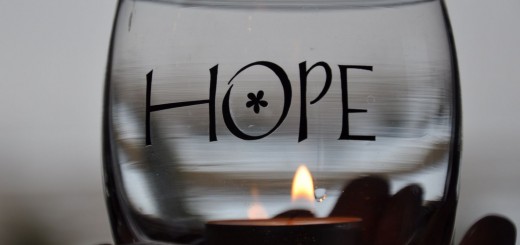James, a little book of wisdom: is there any need to swear?
Today’s wisdom:
Above all, my brothers and sisters, do not swear—not by heaven or by earth or by anything else. All you need to say is a simple “Yes” or “No.” Otherwise you will be condemned. James 5:12
My random musings:
To be clear, this wisdom has nothing to do with the kind of swearing you’re probably thinking about. This is about swearing oaths to convince others of the truth of what you’re saying.
Referring closely to Jesus’ teaching in the Sermon on the Mount, James is challenging his readers to ‘ensure the integrity of one’s speech without having to rely on oaths’ (from James 5 Commentary). At the time, there were different levels of oaths, some more binding than others. Jesus – and James – believed that oaths were completely unnecessary if people could rely on you to speak the truth with a simple yes or no.
James emphasises the importance of this wisdom by saying ‘Above all’. He also emphasises the consequences of speech without integrity. You will be condemned.
Say what you mean and mean what you say. That’s it. Do that consistently and there will be no need for oaths to prove your sincerity.
James is speaking into a context of violence where the faith and perseverance of the early Christians is being sorely tested. Some will be striking bargains with God to escape persecution; others bargaining with their oppressors to escape torture; others compromising with their neighbours to stay out of trouble. And all this actually stems from a lack of faith in God’s omnipotence and omniscience. If God is all-powerful and all-knowing, then we can have complete faith that He knows what He is doing, what He is allowing and there is no need for oaths.
I’ve prayed those manipulative kind of prayers, haven’t you? Trying to strike a bargain with God to stop something terrible from happening. Promising the world. Now I try to pray saying ‘Not my will, but yours be done’.
And I have people in my world – some of my kids mainly! – who do use phrases like ‘I swear down’ and ‘I swear on my…’. Oaths are not a thing of a past. It seems to me the people who use them most are the ones we have trouble believing the most! That’s why they have to resort to them, I guess.
I aim to speak the truth, to not over promise and under deliver. I want to be seen as a person of integrity – reliable and honest and trustworthy. I want people to know that when I say yes, I mean yes and when I say no, I mean no. Let’s just say it’s a work in progress!
And just a final thought on swearing. Some Christians believe this verse backs up the idea that we shouldn’t swear, but that isn’t what it’s referring to at all. It seems to me that we each have a scale of how serious swear words are – the ones we are prepared to accept and not prepared to use. We have to understand that that is a sliding scale. There are no definitive rules on this. It’s a cultural scale ie. the conclusions you’ve come to about swearing depend on the culture you were brought up in and live in.
I did not utter a swear word until I was at university – can you believe that? I really thought I would incur God’s wrath if I swore. But what went on in my culture was worse: everything was repressed. Anger and resentment seethed below the surface with no way out. Other ‘harmless’ words were spoken with such venom that they were far from harmless. I needed to find a safe outlet for the passionate negative emotions within me.
And so yes, on occasions, I swear. It’s like a pressure valve – a quick release. To me, the real issue with the words is the way in which they are said and who they are directed at. If they are spoken in a demeaning way with a lack of respect, spat out to bring someone down and hurt them, then whatever words are used, that is clearly wrong. For me, it’s not so much what is said as the way it is said.
I’ve said it before earlier in this series – our words have power, all of our words. Let’s not focus in on just a few, but on every word that comes out of our mouths.
My question to you:
What is your view on oaths and swearing and how might God be wanting to challenge that view today?












